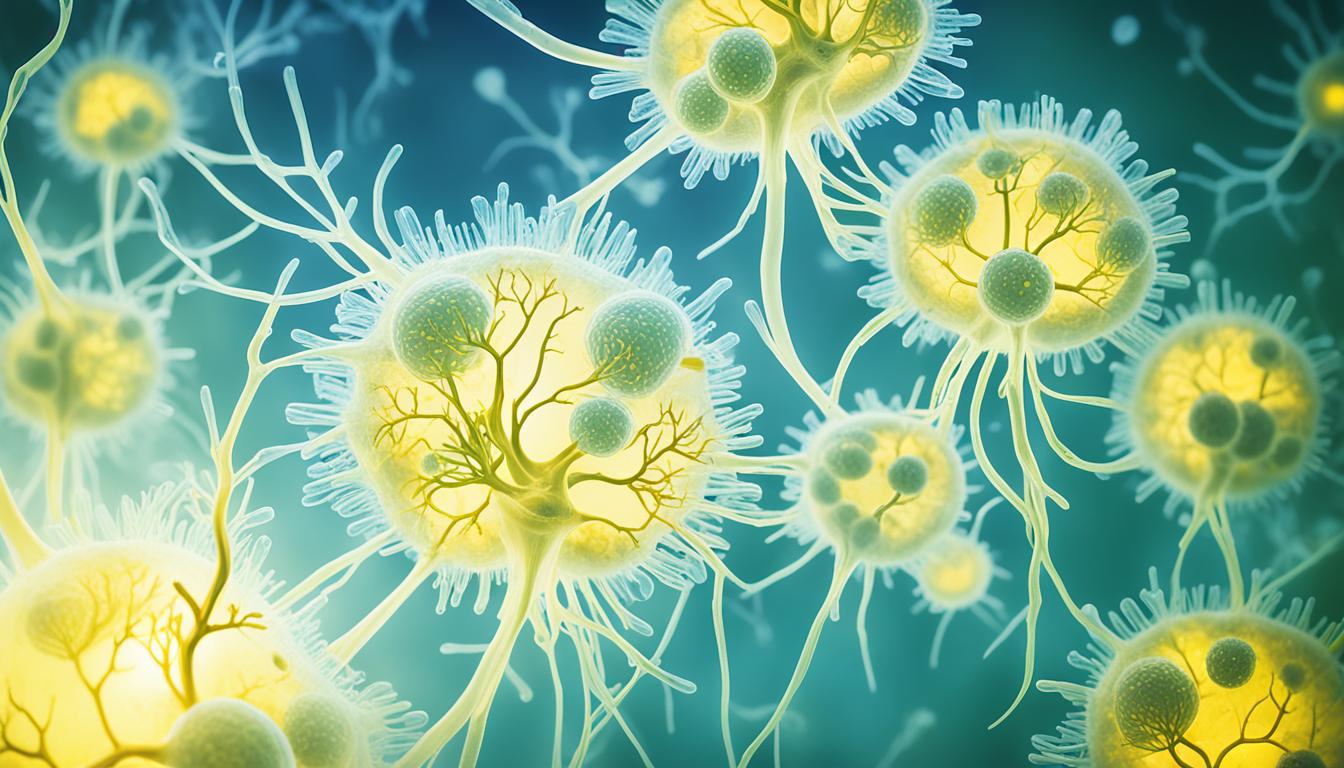Primary sclerosing cholangitis (PSC) is a liver disease known for inflaming and scarring the bile ducts over time. It’s a liver disease where your immune system targets the liver. This can cause liver inflammation and damage. The exact reasons behind PSC are not fully understood. It’s thought to involve a mix of autoimmune responses, environmental parts, and lack of blood supply.
Finding PSC early is key for treating it well. A crucial test for PSC is cholangiography. This checks your bile ducts using special imaging. You can get this test through endoscopic retrograde cholangiopancreatography (ERCP), magnetic resonance cholangiography (MRCP), or percutaneous transhepatic cholangiography.
PSC can lead to serious complications like bile duct cancer or colon cancer. Managing PSC mostly involves tough choices like liver transplant or endoscopy. This is because there isn’t a strong option in medical treatment yet.
But there’s hope. Scientists are looking into whether stem cell therapy and targeted molecular drugs can help. Stem cells might repair your liver and make it work better. These new approaches could be a game-changer for PSC patients.
Key Takeaways:
- Primary sclerosing cholangitis (PSC) causes liver duct inflammation and scarring.
- The exact reason behind PSC is not fully known, but many factors play a role.
- Cholangiography is crucial for diagnosing PSC, done by using special tests like ERCP, MRCP, or percutaneous transhepatic cholangiography.
- Issues like bile duct and colon cancer can arise from PSC.
- New treatments like stem cell therapy and specific drugs are under exploration for PSC.
Diagnosis and Clinical Features of Primary Sclerosing Cholangitis
Diagnosing primary sclerosing cholangitis (PSC) includes using cholangiography. This shows the bile ducts’ unique narrowings and expansions. The procedure can be done in different ways, like through ERCP or MRCP.
People with PSC often have inflammatory bowel disease, especially ulcerative colitis. It’s important they get yearly checks, including exams, blood tests, and ultrasounds. Anyone with PSC and certain bowel conditions should also have routine colonoscopies.
If PSC gets worse or causes other problems, a liver transplant may be needed. This surgery can greatly better someone’s life and increase their chance of living longer.
Sometimes, PSC might also lead to gallstones or growths in the gallbladder. These issues may need their own treatments.
Diagnostic Methods for Primary Sclerosing Cholangitis
| Diagnostic Method | Description |
|---|---|
| Endoscopic Retrograde Cholangiopancreatography (ERCP) | A procedure that uses an endoscope to visualize the bile ducts and inject a contrast agent for imaging. |
| Magnetic Resonance Cholangiography (MRCP) | An imaging technique that uses magnetic resonance imaging (MRI) to visualize the bile ducts without the need for invasive procedures. |
The picture here shows visible bile ducts using cholangiography. This test is vital for diagnosing primary sclerosing cholangitis.
Complications and Treatment Options for Primary Sclerosing Cholangitis
Primary sclerosing cholangitis (PSC) can lead to many problems in the body. It affects the liver, heart, gut, and bones. Complications may cause liver failure, swelling, or liver illness.
People with PSC might have high blood pressure or swollen veins. These issues can cause bleeding. There could also be brain problems because the liver can’t get rid of toxins.
Sometimes, PSC makes the spleen bigger and forms stones in the gallbladder or bile ducts. In later stages, it can bring osteoporosis, oily stools, and cancer. Doctors use drugs to treat symptoms like itching. But for the worst cases, a liver transplant might be needed.

